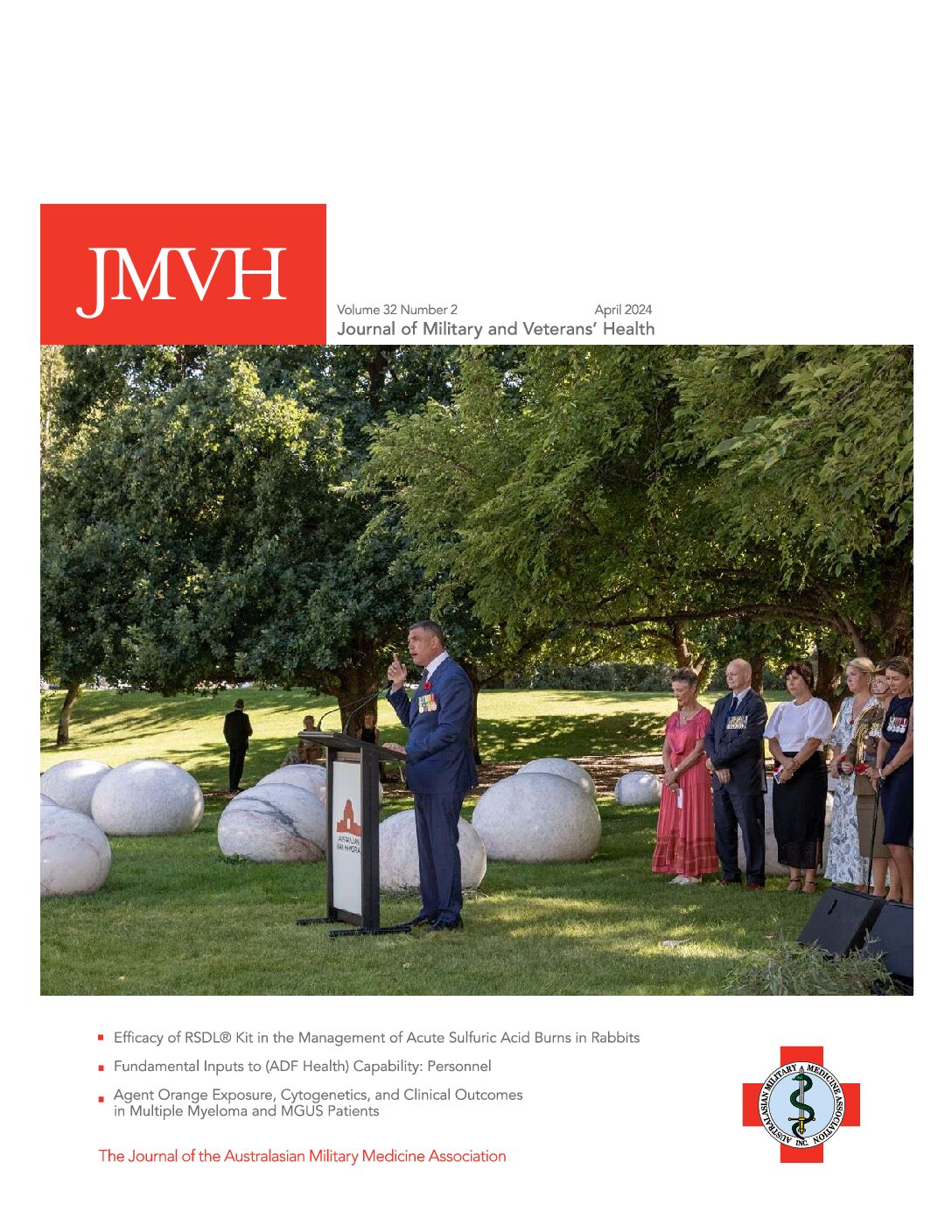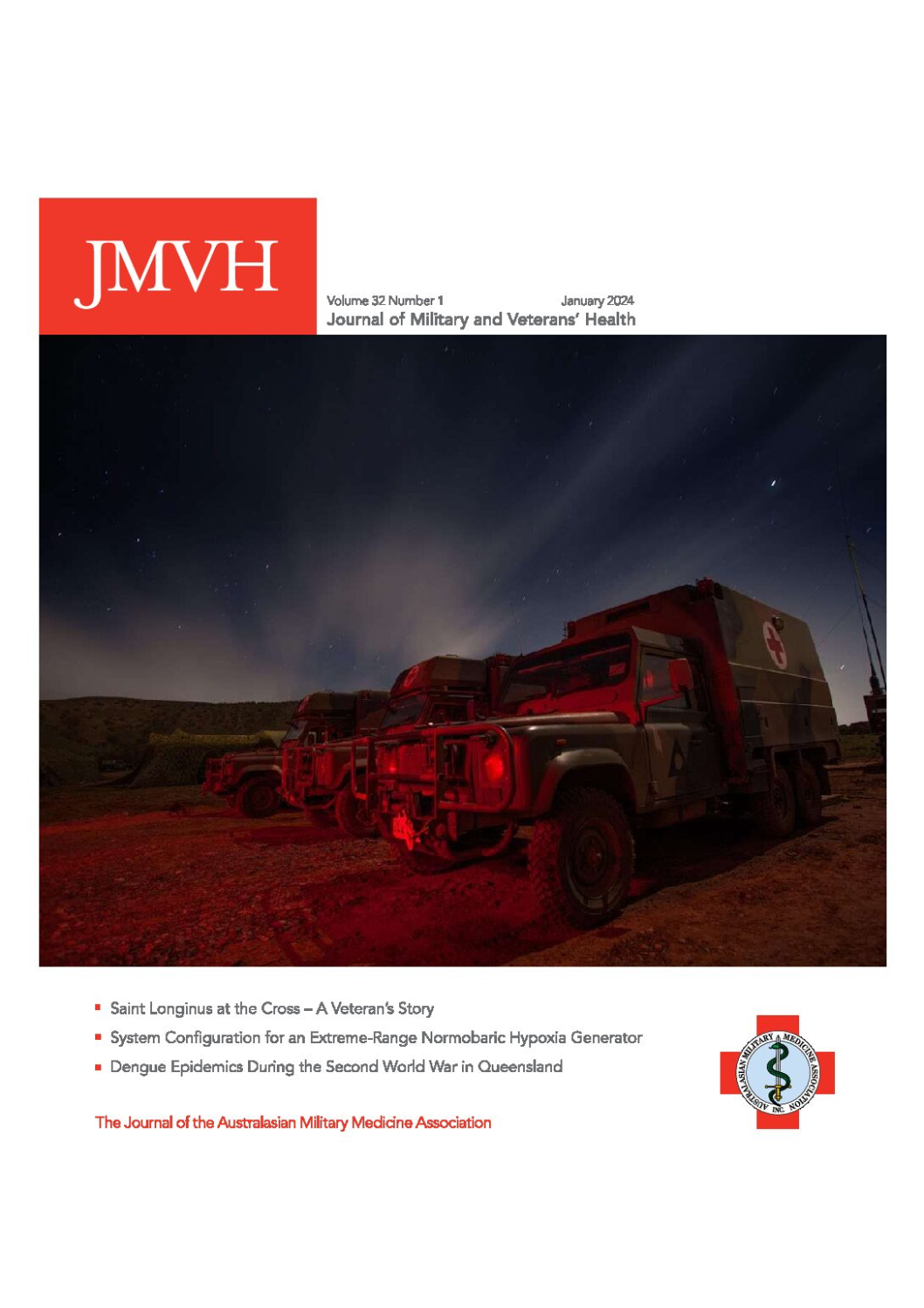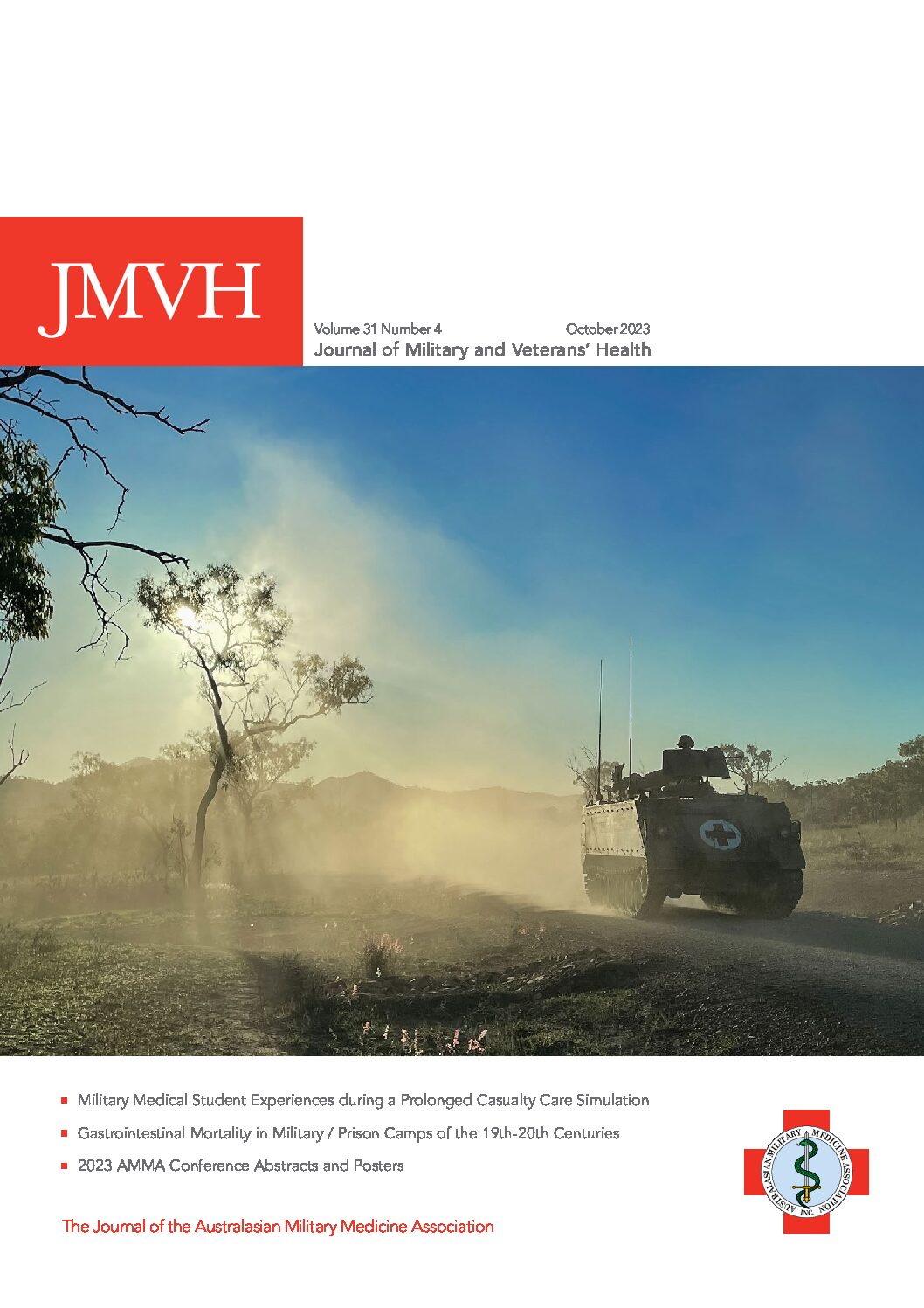This edition of JMVH focuses on training within the Defence environment.
Contributions are international and of international standard.
The edition begins with an overall paper by Leggat, Aitken and Seidl regarding the context of postgraduate
education for health professionals in the Defence environment. This places the background for the more specific papers regarding important though more narrow aspects of Defence Health Service training. The paper does include several very salient and specific points despite the broad view. Particularly it is a risk to only consider clinical training for Defence health professionals. Leggat etal point out the mistake in this with respect to the common circumstance of health operations under command of general military officers with minimal preparation for clinical governance, health care ethics and law, health economics and direct medical management.
Other key points in Defence health training discussed in this paper are the importance of utilizing flexible modes of teaching and simulation which are explored further in papers of this edition. Finally, the importance of civilian-military training is introduced with the potential conflicts and benefits of mutual understanding which are discussed in specific situations by other papers. The overlap between extensive civilian practice in this area is valuable to
be passed onto military practice. A similar area of overlap between civilian and military training and roles is illustrated in the emerging area of Physician Assistants contributed by Allan Forde and Dennis Pashen from James Cook University where PAs are currently in training.
Continuing the training theme of this edition is a paper furthering the discussion of civilian-military interaction for General Practice training of Medical Officers. To be deployable with the ADF, Medical Officers are required to complete military and military health training in addition to undergraduate and postgraduate civilian training. To be deployable unsupervised, ADF MO must reach Competency Level 3 which requires completion of Fellowship in the
Royal Australian College of General Practitioners or the Australian College of Rural and Remote Medicine.
Typically this training is undertaken in the first few years after graduation when the military training requirements are also high. Coordinating these can be a challenge.
The Journal of Military and Veterans Health is pleased to have received and publish a paper by CPL C. Stevenson discussing blast injuries, particularly those from improvised explosive devices. This is a well written and timely paper regarding core business of many military health professionals today.
Book reviews this edition will be of interest to those in military practice including a review of the Guide to Intensivist and Anaesthetist Training, and the next in the popular Therapeutic Guidelines series, on Dermatology.
Of course for those now inspired by the Journal, the Instructions for Authors are provided. The Editorial
team including myself are available to advise on any possible contributions you feel may be of interest to the
readers of the Journal of Military and Veterans Health from short communications or Letters to the Editor on
operational experiences, to case studies or series of clinical note in military practice, or original articles of
clinical relevance to military health practitioners.
Thank you for your continued support of the Journal of Military and Veterans Health.
Good reading.
Scott Kitchener
Managing Editor






